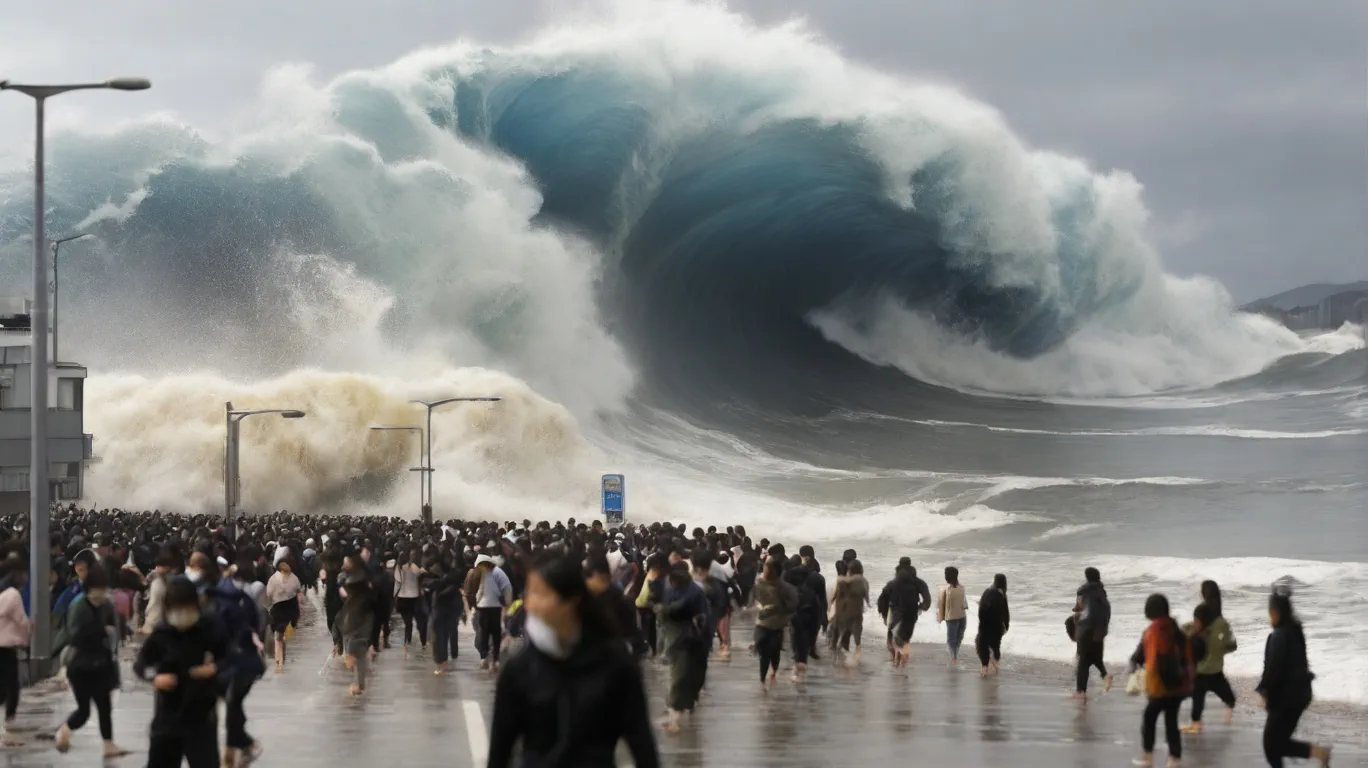
Extreme Rainfall Event Devastates Tokyo: A Sobering Look at the Impacts of Climate Change
In a startling display of nature's raw power, the city of Tokyo, Japan, was recently struck by a torrential downpour that left the metropolis reeling. On August 23rd, 2024, a staggering 100 millimeters (3.9 inches) of rain fell within a single hour, causing widespread flooding and chaos throughout the Japanese capital.
This unprecedented weather event serves as a stark reminder of the growing threat posed by climate change and the urgent need for comprehensive action to address its consequences. As global temperatures continue to rise and weather patterns become increasingly erratic, such extreme rainfall occurrences are likely to become more frequent and intense, posing significant risks to urban centers and vulnerable populations around the world.
The Impact on Tokyo
The sheer volume of rain that fell in such a short span of time overwhelmed the city's drainage systems, leading to the inundation of streets, homes, and businesses. Residents were forced to navigate knee-deep waters, disrupting daily routines and causing widespread disruption to transportation and essential services.
Authorities reported that several neighborhoods were completely submerged, forcing the evacuation of thousands of individuals. Emergency responders worked tirelessly to rescue stranded residents, many of whom had become trapped in their homes or vehicles. The floodwaters also caused significant damage to critical infrastructure, with reports of collapsed bridges, damaged sewers, and power outages affecting large swaths of the city.
The economic toll of this extreme weather event is expected to be substantial, with businesses, industries, and the broader economy bearing the brunt of the disruption. The clean-up and recovery efforts will require substantial resources and coordination, placing an additional burden on the city's finances and resources.
Broader Implications
The Tokyo flooding incident is not an isolated event but rather a manifestation of a larger global trend. Climate change-driven extreme weather patterns are becoming increasingly common, posing a threat to urban centers and communities worldwide. From devastating hurricanes and wildfires to prolonged droughts and heat waves, the impacts of a warming planet are being felt across the globe.
This event serves as a wake-up call for policymakers, urban planners, and citizens alike. It underscores the urgent need to invest in resilient infrastructure, implement comprehensive disaster preparedness and response strategies, and adopt sustainable practices that can mitigate the effects of climate change.
Furthermore, the Tokyo flooding highlights the disproportionate impact that such events can have on vulnerable populations, including the elderly, low-income communities, and those living in substandard housing. Addressing these disparities and ensuring equitable access to resources and support during times of crisis must be a priority in any effective climate adaptation strategy.
A Call to Action
The Tokyo flooding is a sobering reminder that the effects of climate change are no longer a distant concern but a pressing reality that demands immediate attention and action. As a global community, we must come together to develop and implement comprehensive solutions that can reduce greenhouse gas emissions, enhance climate resilience, and protect the most vulnerable populations.
This may involve a multifaceted approach, including investments in renewable energy sources, sustainable urban planning, improved early warning systems, and robust disaster response mechanisms. Policymakers must also work to enact legislation and regulations that incentivize sustainable practices and hold major emitters accountable for their contributions to the climate crisis.
At the individual level, we all have a role to play in driving the necessary changes. By adopting eco-friendly lifestyle choices, supporting climate-conscious policies, and advocating for bold action, we can contribute to the collective effort to build a more resilient and sustainable future.
The Tokyo flooding serves as a powerful reminder of the urgent need to address the challenges posed by climate change. As a global community, we must heed this warning and take decisive steps to mitigate the risks and protect our cities, our communities, and our planet. The time for action is now, and the stakes have never been higher.